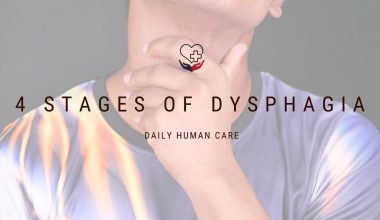This post by Daily Human Care is all about the Alcohol and Drug detox process.
Individuals suffering from alcohol or drug abuse have different needs and symptoms. It can range from moderate to severe, depending on the number of symptoms you experience. If you or your loved ones are addicted to alcohol or drugs, they need to go through a detoxification process, as a vital step in their recovery from the addiction.
The idea behind detox is that someone physically ill will discover it is tough to address any underlying mental health issues. The purpose of detox is to address the physical element of addiction as a first step, preparing patients for addressing the psychological aspects of their addiction as part of a rigorous addiction rehabilitation facility.
Table of Contents
What is Detox?
By removing all traces of alcohol and narcotics from the body, the detoxification process makes sure that a person is both physically stable and ready to start counseling to overcome their addiction. Although it is not usually a part of addiction therapy, it is expected when starting a rehabilitation program.
The result of alcohol or drug abuse is that a person’s body becomes accustomed to having these substances in it. When these compounds are gradually reduced, the brain must adjust to the sudden drop in these molecules. People frequently experience a group of uncomfortable symptoms referred to as “withdrawal symptoms”.
The detoxification process tries to lessen the negative consequences of withdrawal symptoms while making the experience as safe and comfortable as feasible.
How Does a Medically Assisted Detox Work?
- Medical Assessment: Patients undergo a thorough medical evaluation as the first stage in a medically assisted detox to create a precise image of their unique needs. A professional will do this evaluation and use the data to create an exclusive detox plan for each patient by learning about their addiction and medical history.
- Withdrawal Symptoms: A patient will start to experience withdrawal symptoms when the amount of alcohol/drugs in their system decreases. Many people going through detox may encounter symptoms that are comparable to those of alcohol or drug withdrawal. It is critical to note that every individual goes through detox differently, and every detox experience—regardless of whether someone has gone through detox before—is unique. Symptoms of withdrawal can range from physical to psychological. Here are a few physical symptoms:-
- Headaches
- Sweating
- Abdominal cramps
- Muscle and bone pain
- Exhaustion
- High temperature or chills
- Nausea, diarrhea, and vomiting
- Runny nose, etc.
Psychological withdrawal symptoms:-
- Hallucinations
- Anxiety
- Depression
- Agitation
- Paranoia
- Confusion
- Irritability
- Fail to concentrate, etc.
- Medication: As part of the detox process, patients will get carefully monitored medication to help them manage withdrawal. Although no drug can stop every withdrawal symptom, some medications can help to reduce anxiety and despair, promote restful sleep, and address as many other issues as possible.
What is the duration of the Alcohol and Drug Detox Process?
Depending on the person and the substance they are detoxing from, drug or alcohol withdrawal can last for various lengths of time. While the goal of the first stage of addiction detox is to clear the body of narcotics, withdrawal symptoms can vary widely in duration, lasting anywhere from a few days to many months or longer. To establish the appropriate amount of time for detox and ongoing addiction therapy, each individual must be evaluated.
The length of withdrawal may vary depending on a variety of circumstances:-
- History of preceding withdrawal.
- Family history of addiction.
- The substance of abuse.
- The severity of dependence.
- Period of use.
- Level of willingness to chance.
- Presence of co-occurring medical or psychiatric conditions.
- Risk of developing severe withdrawal symptoms and more.
Detoxification Program Types:
Programs for drug detoxification can be conducted in a range of therapeutic environments with various degrees of care.
- Inpatient Detoxification: For those who are already intoxicated or at a high risk of experiencing severe withdrawal, a medically supervised inpatient detoxification program offers an advantageous level of care. An inpatient detoxification program under medical supervision offers access to life-saving equipment, monitoring, and care around the clock. This type of care is provided in a hospital setting and is regarded as the highest quality.
- Residential Detox Treatment Center: In a residential detox facility, the individuals are monitored 24/7 by clinical staff. They provide several services that include behavioral therapy and 24-hour living support and structure.
In these situations, medications are given to patients to lessen the consequences of withdrawal. However, acutely unwell individuals who run the danger of experiencing life-threatening detox are admitted to inpatient detoxification under medical supervision. Residential detox centers aim to lessen the consequences of withdrawal by offering monitoring, observation, and support.
- Intensive Outpatient Treatment Centers/ Partial Hospitalization (PHP) Detox Programs: People who do not require round-the-clock supervision can receive detox treatments in outpatient facilities through two different levels of care: intensive outpatient and partial hospitalization. Both levels of treatment are capable of offering medication management and counseling. Living at home while frequently visiting an outpatient detox clinic is possible. Depending on their degree of care, they may need to spend many hours a day or several times a week on-site.
How to Locate a Drug or Alcohol Detox Center:
Seeking medical detox is one of the best ways to ensure your safety and comfort as you start along the road to recovery. ‘Where can I get free medical detox near me?’ or Are their detox hospitals near me? Following are a few qualities to look for in a reliable drug or alcohol detox program.
- A customized detox plan for people with diverse needs and symptoms.
- Length of detoxification.
- A strategy that is considerate of the requirements of persons from many racial and cultural backgrounds.
- If necessary, provide medicine to keep a person comfortable during the withdrawal procedure.
- Managing any co-occurring medical or psychological issues.
- Possessing a federal license, which is crucial if you need to take specific drugs to treat opioid withdrawal.
- Having knowledgeable, experienced, and credentialed personnel.
- Having the best resources to connect you with the right treatment program, after passing addiction detox.
Conclusion:
The amount of money that detox costs have led to the development of illegitimate detox facilities near you. Be careful while looking for a drug and alcohol detox center near you because the field of addiction treatment is not exempt from fraudulent activities. I hope this blog answered all your queries regarding the detox process and how to find one.
Helpful resources:
Alcohol Addiction Treatment Center
Drug And Alcohol Addiction Treatment Center
Drug and Alcohol Treatment Programs
Alcohol and Drug Detox in Massachusetts
Drug and Alcohol Detox Centers in Idaho
Alcohol Detox Center In New Jersey



